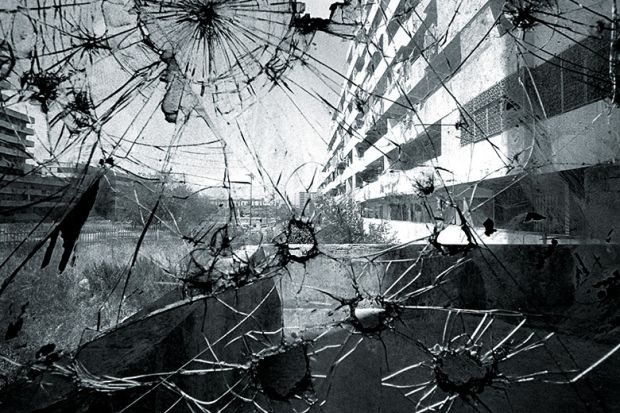Since the premise of our Outer Limits series is to provide stories of research "outside the comfort zone", it’s no surprise that featured academics routinely find themselves in highly dangerous situations.
But there’s a degree of difference between the dangers of doing research next to an active volcano, say, and researching criminal underworlds. With the latter, people can retaliate after you’ve finished your studies.
That was the first question I put to Felia Allum, a University of Bath academic and ethnographer of the Mafia, when I interviewed her about her research into the Neapolitan Camorra. Did she ever feel worried there might be repercussions to researching an outfit with a history of brutal violence?
Dr Allum conceded at once stage that she had “concerns” when interviewing the cousin of an alleged former head of a noted Camorra clan, and asked herself whether she was getting in too deep.
In the main, however, she said that the amount of time that elapsed between her interviewees’ crimes and when she spoke to them meant they had often “moved on” from their past and were therefore unlikely to target her.
Still, I remember feeling a palpable quickening of my heart when the feature was published, so what must an academic feel? It does raise a question about how much scholars put themselves in the firing line (so to speak) for ethnographic work into volatile groups, and how much their universities allow them to do so.
Dr Allum said that discussing research into criminal gangs did require frank discussions with Bath about “ethics” and “risk assessment”. She draws comfort from the fact her work often looks back at historic cases, first and foremost. But also, her approach is careful. She wouldn’t “necessarily go around advertising exactly what I’m looking at and how I’m looking at it”.
It was this line of conversation that reminded me of the tragedy of Giulio Regeni, the University of Cambridge PhD student who was murdered in early 2016 while carrying out doctoral research in Egypt. Some suspect that the Egyptian authorities were involved – something that they have denied. And more than a year on, there is still no answer as to who killed him and why.
In our conversation, Dr Allum noted that the case could have ramifications on her, and others’, future research into volatile groups.
Should academics continue to do research on issues that may anger the subjects? Absolutely. As Dr Allum pointed out, academic research on the Mafia is “crucial” to furthering the campaign of bringing down organised crime. But how one goes about it is up for discussion.
It is important to point out Regeni, as his friends and colleagues noted, was extremely careful with how he conducted his research. However, his death raised questions for those conducting controversial fieldwork, and Dr Allum thinks projects looking into potentially incendiary groups require caution.
“One has to be careful, especially when it comes back to the notion of understanding and knowing what you’re looking at,” she said. “[There is an] ethical consideration and risk assessment [of the areas] I want to engage in.
“One of the caveats is that I’m looking at 2000 to 2015, and I take my time. So by the time I’ve written it up, maybe we’re in 2020 and anybody who is interested or I’m interested in will have moved on.”




